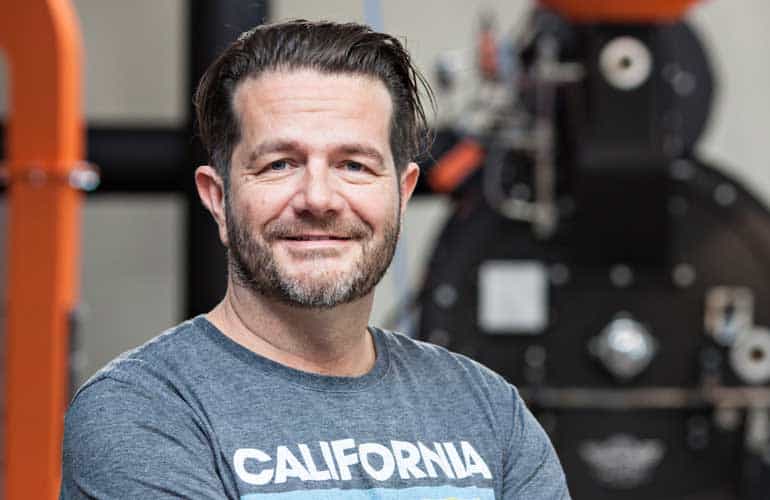Our Story
Where did you get that name?

The Badger
Australian Brock Lewin is the Badger in Badger & Dodo, Broc being Irish for Badger. Brock first pulled a shot of coffee in 1993 whilst at Uni’ in Sydney but really came to terms with speciality coffee whilst living in Melbourne from 2005-08. He relocated with his wife to Fermoy Co Cork and established Badger & Dodo on his in laws’ farm in July 2008.

The Dodo
Dodo is the father-in-laws’ childhood nickname. Dodo is a bit of legend in himself. We wouldn’t be where we are without this man. He’s a cross between a retired chicken farmer, Teagasc scientist / inventor come MacGyver !
THE BADGER’S SET …
In 2013 we rebuilt the roastery – a whole new building, double insulated and ventilated for perfect humidity – crucial to green bean storage and airflow roasting requirements. The need to rebuild was primarily to house ‘Dr O’ (see below) as well as our existing 10kg and 1kg roasters.
Within this set is a very tight knit group of dedicated staff. Elia was an all-Ireland Costa coffee barista champion, barista trainer and branch quality control manager long before making his way to us in 2013 – after which he learned the art of roasting from Brock, completed the SCAE Diploma and the prestigious Coffee Quality Institues’ Q grader program – confirming his expertise in sensory accuracy. Jay is our roastery manager who oversees everything after that from blending through to dispatch.
… “DOCTOR O” AND THE 3RD WAVE
Dr O is our customised cast iron, 30Kg roaster. Roasting via a fluid bed of hot air gives a more even roast which is smoother & richer in flavour. All our coffees undergo scrutiny:
- rigorous blind cupping of samples,
- moisture readings on arrival and before roasting,
- humidity monitored and controlled warehousing,
- roast profile refinement – this last stage involves cupping and refining roast profiles continually until we have it 100%. We are the only micro roaster in Ireland to employ a Q grader (a highly trained and tested specialised sensory master) to do this. This process of refinement would not be possible without our modulating coffee roaster, the only one of it’s kind in Ireland, basically this means that the roaster has 100% consistency according to the roast profile because the roaster controls the roast according to the profile we give it. Once we find that ideal roast profile we lock it in so that particular coffee gets roasted for exactly the same time at exactly the same temperature for every second it roasts – and it does this the exact same way every time it’s roasted. There is no other roaster like it in Ireland.
In an industry where ‘consistency is king’ this is a vital piece of technology. 3rd wave coffee refers to the latest approach to coffee sourcing and roasting. 1st wave is typified by ‘Italian’ roasters who traditionally would have had little regard to roasting or sourcing, 2nd wave roasters would be typified by dark roasting under the illusion that this would bring strength. ‘3rd wave’ coffee roasters:
1) Roast in smaller roasters simply because it allows much greater control over heat. We understand that heat needs to be tamed to bring out the unique characteristics of every crop.
2) Having a small roaster and relatively smaller customer base limits output. Hence this allows us to source smaller & more exclusive coffees, and, form closer relationships with our limited number of wholesale customers.
3) Baristing standards and espresso machines have also developed exponentially in line with wanting to get more from such high quality coffees.
Why do we call ourselves ‘Boutique’ Coffee roasters?
The idea behind this is, like a fine womens’ clothing boutique, we have a range of coffees chosen for their outstanding qualities, to present a range of coffee with profiles for everyone. All of our single origins are Arabica and Speciality – that is, scoring 85+, and we only buy current crop coffee..
In 2018 we went to Brazil and Colombia to meet farmers and began shipping coffee straight into port of Cork – no longer via England or further afield. This means more for the farmer, more for the Irish economy and fresher & better coffee.